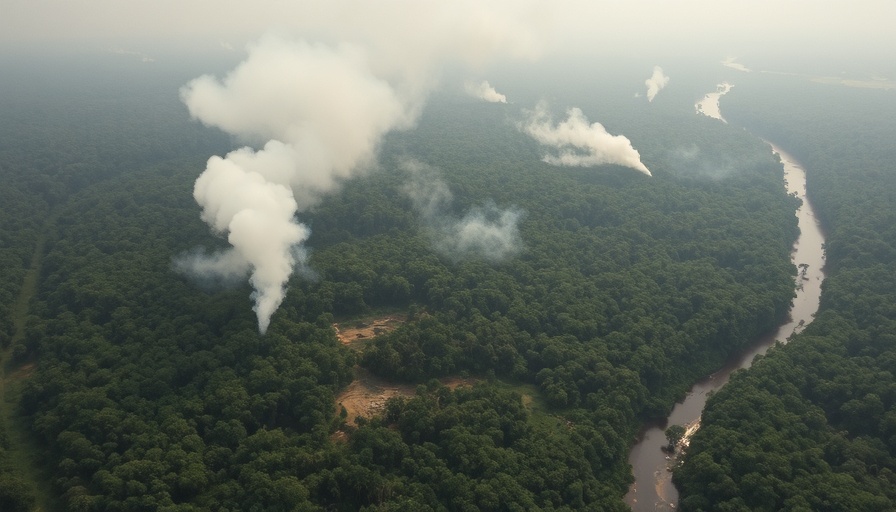
The Dual Challenge of Amazon Conservation
The Amazon Rainforest, often referred to as the lungs of the Earth, faces severe challenges as reports show a paradoxical trend: while deforestation in the region saw a decline of 7% in 2024, land degradation—a less visible but equally damaging process—escalated alarmingly by 497%. This significant increase signals a pressing need for comprehensive strategies to bolster conservation efforts.
Understanding the Impact of Degradation
Land degradation encompasses processes such as wildfires, logging, and other human activities that compromise the forest's integrity without completely clearing it. Reports indicate that over 36,000 square kilometers of the rainforest underwent degradation in 2024, affecting biodiversity, climate stability, and the livelihoods of indigenous communities. Unlike deforestation, which involves total clearance, degradation might often fly under the radar, yet it suggests a worsening ecological crisis.
The Role of Climate Change
Climate change is a significant catalyst for this degradation surge. Extreme drought conditions in previous years have turned vast tracts of the forest more susceptible to wildfires. Moreover, ongoing climatic shifts threaten to alter precipitation patterns crucial for the rainforest's health. Experts caution that while a rainy season in 2025 may bring temporary relief, proactive measures must be taken to protect the ecosystem.
Why Conservation Efforts Matter
As degradation peaked at levels not seen since 2009, the urgency for concerted efforts to combat this trend is more pronounced than ever. Conservationists advocate for the designation of untouched public lands as protected areas to thwart illegal logging and land grabbing, which exacerbate the degradation crisis. Addressing these root causes is vital not just for safeguarding biodiversity, but for maintaining the Earth's climate equilibrium.
Action Steps for the Future
To combat the rising threat of land degradation, experts suggest several actionable insights: firstly, harnessing the rainy season to strengthen conservation initiatives is key. Secondly, implementing strict monitoring of deforestation and promoting the allocation of lands for conservation can significantly mitigate degradation levels. Additionally, raising public awareness about the importance of protecting the Amazon is crucial in building a collective effort toward sustainability.
 Add Row
Add Row  Add
Add 




Write A Comment